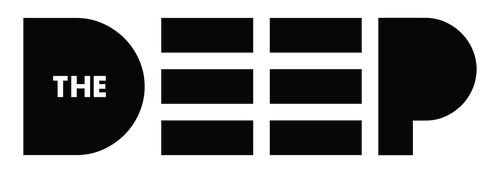Whether you’re a skeptic or a believer, it’s hard to avoid astrology these days – especially on social media. The industry has taken off in a huge way, with thousands of astrology-based Instagram and TikTok accounts serving up guidance, predictions and personalized recommendations on the daily.
While some people think of astrology as a fun and light-hearted source of entertainment, others give it the weight/legitimacy that is typically reserved for established branches of science.
So is astrology real? Is it true that the date/time you are born predicts who you will become? Or is that just a load of B.S. (like a Leo spurning the spotlight)? Let’s dive in.
First: a basic issue
We’re just going to come right out and say it: while researchers have conducted quite a few studies testing the accuracy of astrological predictions (more on that in a minute), there’s at least one basic thing that makes astrology a dubious “science” right off the bat: that’s the issue of the “planetary wobble.”
No, that’s not the latest TikTok dance trend; the earth actually wobbles like a spinning top that’s going to fall over. Because of this wobble, the earth has shifted (in relation to the stars) a full 30 days in the last 2,000 years. Meaning that all of the zodiac signs are a month “off” from where they were originally located (a Capricorn 2,000 years ago would not be considered a Capricorn today).
[And if the idea of being a totally different sign doesn’t worry you, you’re probably a Gemini.]

Pictured: How we imagine the "planetary wobble" dance would go. (Source: Giphy)
Is it scientific, like, at all?
In a word: no. From pretty much every angle, astrology fails to pass even the most basic scientific thresholds. (We know, so disappointing, right?)
First off, when presented with the same star chart, astrologers’ predictions are all over the map. For example, when 500 astrologers were given the same astrological chart to analyze, researchers found almost zero overlap amongst their interpretations/predictions.
Second of all, astrological signs have pretty much zero correlation with personality. When people were given astrological charts and asked to choose the one that best fit their personality, the charts they selected only aligned with their actual sign 5% of the time – essentially a statistical zero. And then there are the twin studies: if astrology was highly predictive, you'd imagine that twins (who have nearly identical astrological charts) would have very similar personalities. That is not the case; in fact, researchers found no detectable link between 2,011 sets of twins across 100 different personality variables.
But perhaps the most damning study was conducted by Shawn Carlson from the University of California. Carlson contacted thirty of the most respected astrologers across Europe and the United States. They were each asked to review the astrological charts of 116 people without meeting them. For each chart, astrologers were given three personality descriptions: one that matched the actual person's personality, and two others (that were real, but from random people). The astrologers were asked to match the person with their correct personality based only on their astrological chart.
The results? The world-renowned astrologers got it right just 1/3 of the time. Which, statistically speaking, is exactly what you’d get if you picked a personality chart at random.
If it’s unscientific, then why do people fall for it?
One reason astrology is so persuasive is due to the Barnum effect: when people are offered vague and broad information, they often consider it highly personal and precisely tailored to them. So when astrologers give readings or generate horoscopes, they’ll use “Barnum Statements,” which are statements that could apply to pretty much anyone. But the person getting the reading internalizes them in a way that makes them feel highly personal (and accurate).
Also in play is something called “subjective validation:” that’s when people believe something if it has personal meaning to them. Subjective validation was illustrated rather hilariously by a French astrologer named Michael Gauquelin, who offered people free astrological readings if they reported back to him on how accurate they were. After sending out thousands of horoscopes to people of every different astrological sign, the feedback was incredible: 94% reported that he had completely nailed it, and his predictions had come true. What they didn’t know was that Gauquelin had sent them all the same reading – one that was actually intended for a convicted serial killer. Whoops.
The point is that each of these people received information they assumed was personal. So they then believed it and set out to find validation, which they then found.

Naw, you're just a Capricorn. (Source: Tenor)
Finally, there’s the “expectancy effect:” when someone expects a particular result, they (often subconsciously) adjust their behavior to make it come true. In one famous study, scientists had participants teach mice to get through a maze. Some were told they had “maze-bright” rats (a.k.a. smart rats who were good at mazes); others were told they had "maze-dull" rats. Of course, none of this was true; there were no “maze-bright” or “maze-dull” rats. Yet people with “maze-bright” mice unconsciously adjusted their training style and methods, and those mice actually DID do better (and vice versa for the “maze-dull” rats).
So when people get an astrological reading/prediction, they often unconsciously adjust their behavior so that the horoscope “comes true.”
Ok but can astrology be positive, even if it’s not true?
Well, there’s no question that astrology is fun. So as long as people don't put too much weight into astrological predictions, there’s probably not much harm in it. Plus, astrology may offer some comfort: in one 1982 study, Psychologist Graham Tyson discovered that people turn to astrology more in times of stress.
It’s also true that the “expectancy effect” could be a net positive for people who believe a positive/optimistic astrological prediction will come true (and adjust their actions to make it so). If a horoscope informs you that you’re about to find love, for example, you might take active steps to put yourself out there – such as going on dating apps or saying yes to a date you otherwise might not have accepted.
In one study, researchers found that people who were given positive horoscope readings tended to have more positive interpretations of neutral events, and displayed improved cognitive performance and creativity. (And yes, the opposite was true for those given negative horoscope readings). So as long as your horoscope has some positive news in it, there might actually be some real benefits.

Congrats! (Source: Giphy)
The problem is when people believe astrological predictions are gospel. Sociologist Theodor Adorno believes that people who believe in things like astrology may be easily controlled, and less likely to try to improve/control their lives if they think the stars have already decided their future. And of course people who don’t realize that astrology isn’t a predictive science can be taken advantage of by ill-intentioned "astrologers" (a.k.a. scammers) looking to make a buck.
So should I stop reading my horoscope?
We aren’t advocating that you do that (fun is fun, right?). Just as long as you know that there’s no scientific basis to astrology – and that it’s about as accurate as throwing a dart against a wall – you’re good.
__________


